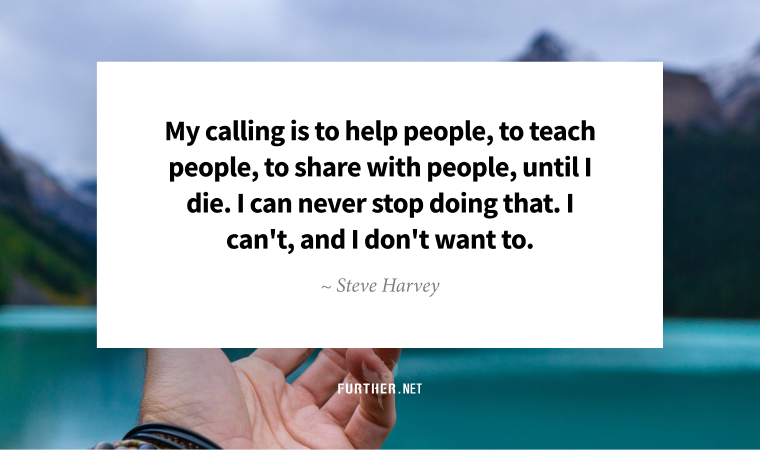From Crisis to Calling 
There's a meme going around you may have seen: Gen X: The only generation that became 30 at age 10, and is still 30 at age 50. Right? Maybe that's why many of us feel like we're just getting started, not about to wind things down. Not that midlife has been especially easy on us. As the sandwich generation, we've got a lot of responsibilities on our plates in a world that seems to get crazier by the day. But it's just now getting good as far as I'm concerned, and I know others feel this way too. Many of us are already past what Brené Brown calls the "midlife unraveling" - that period in your late forties where things are especially tough because we start to realize that perhaps we now want something other than everything we've worked for so far. This is the root of the midlife crisis myth. But as Chip Conley, author of Learning to Love Midlife says, midlife is a calling, not a crisis. It's a calling to focus on what you now know through hard-earned wisdom is what you want next. As Conley puts it: Midlife is an opportunity to stop caring about the things or the people that no longer matter in your life in order to focus on what does matter. So perhaps this whole "extended midlife" thing is perfect for us. Current consensus has it that the stage of life we've historically called "midlife" now lasts until age 75. Rather than a literal midpoint, the new middle age is a period where we're older and wiser, but still healthy, active, and raring to make an impact in new ways. There was a time not long ago where if you said you were going to start your own location-independent business and travel the world or move overseas you'd be accused of having a midlife crisis. That's a silly reaction, but you know how people are. In 2024, though, if you say you're planning to do that instead of planning to retire, it's viewed as a pragmatic response to a new reality. Beyond longer lives and an extended midlife, the news about just how unrewarding retirement actually is has gotten out. One poll this year found that almost one in three Americans say they may never retire: That is because there is depth in being useful. And excitement, even in significantly lower doses than are typical earlier in a career, can act as an anti-ageing serum. This is not the end of the road. This is the time to go further. Further Exploration: Why You Should Never Retire (The Economist) Keep going- Brian Clark P.S. New to Further? Join us here. Conquering the Aging Frontier We all age at varying rates. Super-agers may have great genes, but research shows our habits and routines — everything from what we eat and how we move our bodies to who we spend our time with — matter a lot when it comes to aging well. Now, the next frontier is to target the basic biology of aging and come up with new interventions to slow it down. Scientists Can Tell How Fast You're Aging. Now, the Trick is to Slow It Down (NPR) The Handwriting on the Wall Learning a new skill such as a language or an instrument, or practicing mindfulness meditation, can promote the growth of new neural connections. Add writing by hand instead of typing to that list, which may also help with memory. Writing by Hand May Increase Brain Connectivity More than Typing (NBC News) Heeding the Call More and more Americans are enjoying second acts and envisioning the "retirement years" as just a later phase of their working lives. And the reasons aren't purely financial. Retirement-age people are motivated by values such as personal fulfillment (41%) and having a sense of purpose (37%), as much as potential financial needs (40%). More Americans Are Saying No to Full-Time Retirement (Kiplinger) Healthy Retirement? "It's one of the absolute most disgusting things about living in this country," says a Gen Xer. "Getting sick should not destroy you financially." Around 45% of Americans aged 50 to 64 are worried they won't be able to afford health care when they retire. Just another reason why people are leaving the U.S. for countries with affordable (and often superior) health care. (Fortune) Even Gen Xers with significant retirement savings are worried about a major health scare: 'Being sick could ruin you' You Are Enough 
By Trudi Roth Did you know that by the time you're middle-aged, you're supposedly near or at peak self-esteem (60, according to research)? Recently, after blowing a pitch to an old colleague who's now a ghostwriting agent, I had to remind myself of that stat. In five short minutes, I managed to bring up a sore spot, mangle my credentials, and use a slang word that offended her. I want to say I quickly recovered from my gaffes, especially as someone with a stack of self-help books at her bedside and a consistent meditation practice aimed at ego dissolution. But it took a few days to rebound, which reminded me that self-acceptance is a lifelong pursuit. If you're like me, you might also find yourself wondering When and how will I ever be enough? The Perfect Storm In our age of social media, it's not just children who are susceptible to its adverse impacts, from feeling inadequate to full-on anxiety and depression — we are, too. The siren song of perfection is amplified by your brain's tendency to process things like embarrassment and shame as threats, activating the fight/flight/freeze/please response and pushing you to continuously try harder to do better. This is why self-improvement is now a $13.4 billion market — and it's also a good sign that if someone's making that much money on your angst, it might be time to reframe what "self-improvement" means to you. If you want to move through the world with more resilience and grace, Dr. Jan Bonhoeffer advises an unconventional path to personal evolution: There is transformative power in taking responsibility for your own shortcomings, breaking free from the shackles of societal expectations, and understanding that you are enough exactly as you are. Now, isn't that an improvement over our culture of "compare and despair"? Enough is Enough In the meditation I teach and practice, bliss is defined as a state where nothing needs to change for everything to be OK. That sense of contentment can similarly be achieved in your day-to-day life through self-acceptance and by embracing your authentic self. Authenticity involves aligning our actions with our values and beliefs, even if it means deviating from societal norms. Some of the ways Dr. Bonhoeffer suggests living an authentic life includes cultivating self-compassion, using mindful reflection to get in touch with your values, leaning into your vulnerability, and challenging society's expectations. After my run-in with my old colleague and the imposter syndrome it brought up, I tapped into all those approaches. And when I finally let myself off the hook, I realized that was the perfect way to become a better me The Unconventional Antidote to Self-Improvement (Psychology Today) further: flashback  The Cult - Love Removal Machine Electric, 1987 Boomers talk about when Bob Dylan went electric. But Gen X remembers vividly when The Cult went Electric after the post-punk psychedelia of their breakthrough album Love. The band revealed an all new down-and-dirty sound on lead single Love Removal Machine, with more than a hint of AC/DC in the Rick Rubin production. (YouTube) further: sharing Enjoy this issue? Please forward this email with friends or share on social media. Thank you for sharing Further! | 





No comments:
Post a Comment